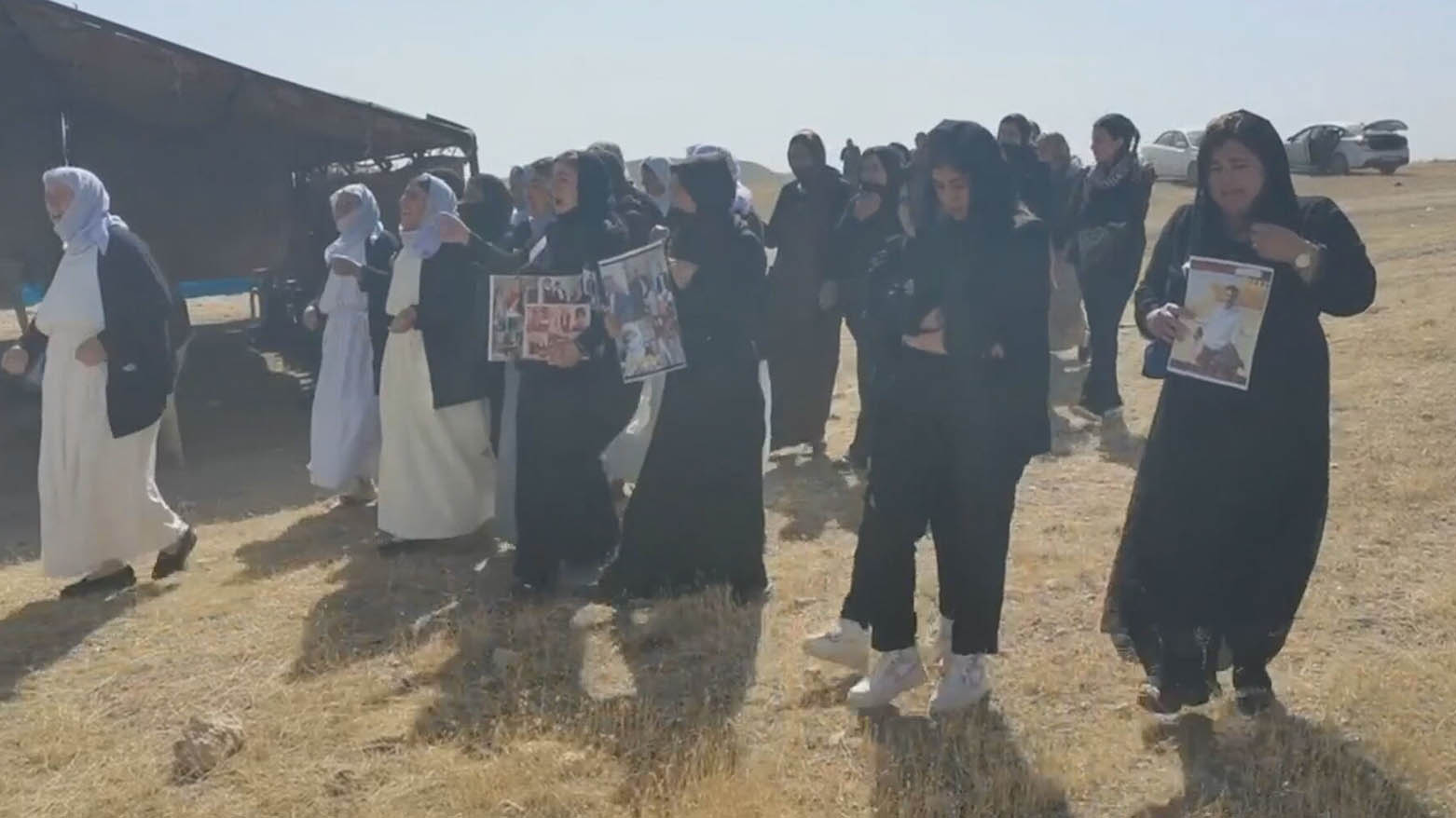Remains of 22 Yezidis to Be Returned to Families in Mid-August
The remains of 22 Yezidis, mostly from Kocho village, will be repatriated August 13. Iraqi officials confirm 25 mass graves remain unexhumed since ISIS's 2014 genocide, leaving hundreds still unidentified.

ERBIL (Kurdistan24) – The remains of 22 Yezidis will be returned to their families on Aug. 13, according to official confirmation. Most of the victims are from the village of Kocho, a predominantly yezidi area in the Shingal region.
Iraqi parliament member Vian Dakhil told Kurdistan24 that repeated requests have been made to the Iraqi government to exhume all mass graves and return the remains to the families of the victims. She stressed that, to date, 25 mass graves belonging to the Yezidi community have yet to be exhumed, underscoring that Baghdad has not taken concrete steps to advance the process.
Dakhil pointed out that since the start of the Yezidi genocide at the hands of ISIS in 2014, 39 mass graves have been discovered in Shingal. Of these, only 68 mass graves have been exhumed, with the remains of 274 victims returned to their relatives. The remains of another 500 victims are still undergoing forensic examination and DNA testing.
Amal Hussein, a relative of the victims, told Kurdistan24: “Our demand has been for the Iraqi government to exhume the mass grave containing our loved ones so that we can visit them on the day of the commemoration.”
Naeem Khalaf, another relative of several Yezidi victims who were killed in the genocide, said: “Every day, we live through a new disaster. We call for the release of all Yezidis who have not yet been returned to their land and families. On top of that, we have still not been able to return to our own areas, and we remain scattered and displaced.”
He added: “In previous returns from mass graves, the remains of my two sons, my wife, and my two brothers were handed over to me. In this caravan, the remains of my sister-in-law, my nephews, and members of our village—who were all relatives—will be returned.”
Following the fall of Mosul on Aug. 3, 2014, ISIS launched a large-scale attack on Shingal and surrounding areas after seizing weapons, ammunition, and military equipment left behind by Iraqi forces. During the assault, ISIS executed men and young boys from Shingal and nearby villages, while women and girls were abducted, enslaved, and sold in markets.
